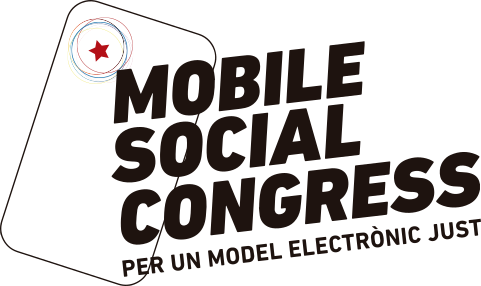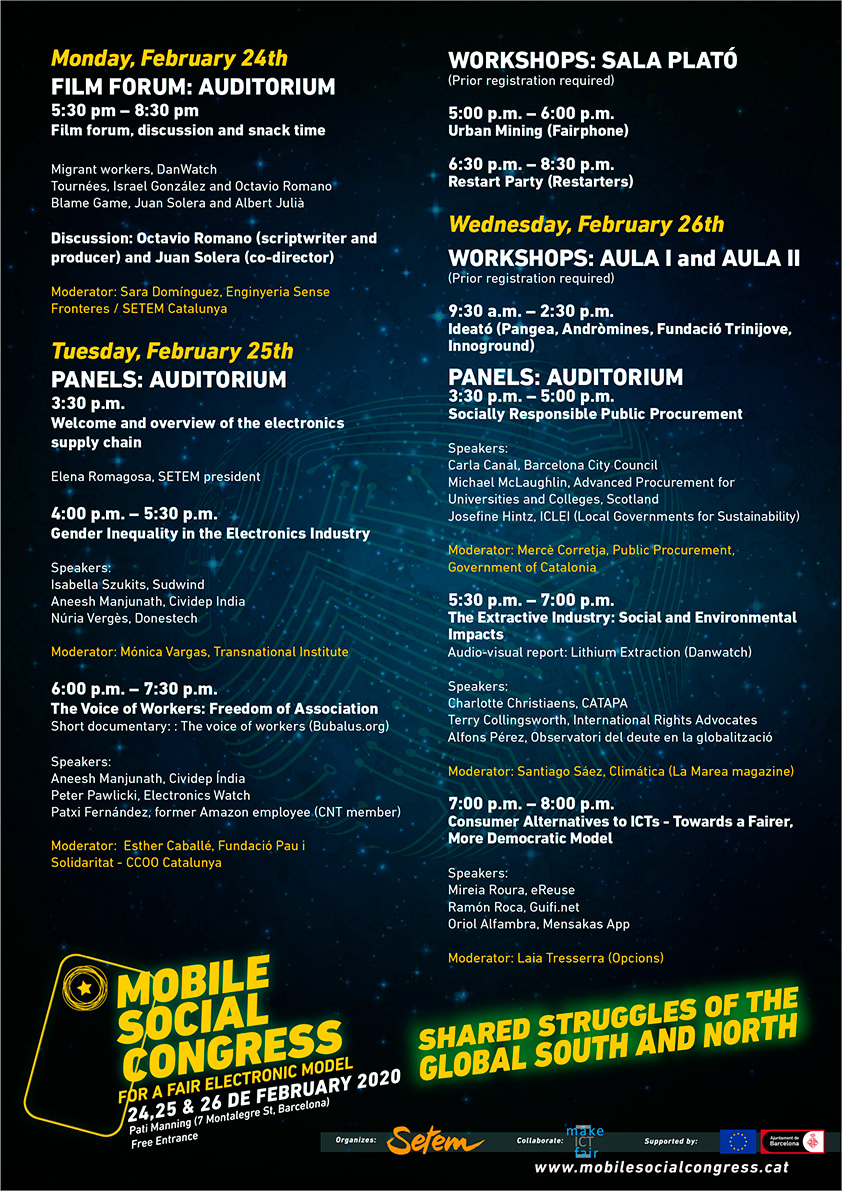SHARED STRUGGLES IN THE GLOBAL SOUTH AND NORTH.
For a fair electronic model
In this edition of the Mobile Social Congress, we will take a look at the shared struggles of the Global South and Global North in the electronics industry. We are emphasizing these common struggles as we work to provide a connected, shared overview of the violations and obstacles generated by the electronics industry all around the globe. To this end, this year the Congress will focus on the violations of human rights and the environmental impacts that result from the electronics industry’s current model of production and consumption in both the Global North and the Global South. We will also emphasize common ground and mutual dialogue among the different associations and labour unions.
MSC will kick off with a series of documentaries and short films on the social and environmental impact of the production and consumption of electronic devices in both the Global North and South.
The first day of the Congress will start with a general overview of the supply chain for the electronics industry. This will be followed by a panel discussion on gender inequality in the electronics sector, with cases of violations of worker security, health standards and rights. Next, we will hear from workers in the electronics supply chain and look at existing synergies between associations and unions in the Global North and South. Meanwhile, we will hold a workshop on urban mining and a Restart Party (both will require prior registration). The workshop will take a look at the different materials our mobile devices are made of, where they come from and how to recycle them, while the Restart Party will teach us how to lengthen the lives of our electronics.
Day two of the MSC will start with an ideathon workshop in the morning where we will learn how to give new life to the components in our mobile devices to keep them from ending up on the landfill. In the afternoon, a panel discussion will look at the power of socially responsible public procurement in addressing gender inequalities in the supply chain of the electronics industry. We will also take a look at the criteria for best practice followed by different administrations.
We will continue to analyse the social and environmental impacts of the extractive industry on a global scale, looking at working conditions in Bolivian mines and the case of Congolese families who have sued companies like Apple and Google for forced child labour. Finally, we will present consumer alternatives in ICTs that ensure a fairer, more democratic model.



